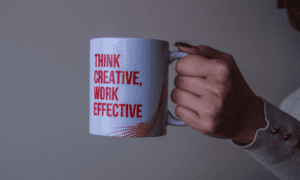In today’s business climate, space efficiency is increasingly important for companies of all sizes. B2B companies especially need to find ways to maximize their space and make the most of their resources. This blog post explores how B2B businesses use cutting-edge furniture design to redefine space efficiency remarkably. We’ll examine the need for space savings, how solar street lights are used to maximize efficiency, and explore the potential of new technologies in home improvement businesses. Finally, this article will analyze the future of space-saving solutions for B2B companies and offer a clear call to action for readers to take advantage of these strategies. To get the most out of this article, please note that it is directed explicitly at B2B business owners, not consumers.
Examining the Need for Space Savings at B2B Companies.
Space efficiency is the process of using existing resources to the fullest extent to maximize output. For B2B companies, this means utilizing their office space as effectively as possible to create a competitive advantage and ensure success over the long term. With cutting-edge furniture design, businesses can increase their space efficiency and make their operations more efficient.
When it comes to space efficiency, there are several benefits that businesses can experience. By entirely using the available space-saving furniture company, businesses can reduce costs by eliminating the need for additional real estate or storage facilities. Additionally, they can increase productivity by creating a working environment designed with aesthetics and function in mind. Finally, they can maximize collaboration between departments by utilizing a well-thought-out floor plan that optimizes employee communication and teamwork.
There are numerous advantages of using cutting-edge furniture design to maximize space efficiency. Furniture pieces such as all-in-one solar streetlights provide a unique combination of illumination and power supply, allowing companies to save on energy costs while optimizing their outdoor space for events or meetings. New technologies such as modular wall systems allow businesses to reconfigure office spaces quickly and easily without significant changes. This makes them ideal for companies dealing with seasonal fluctuations in staff size or for those looking for an affordable way to update their workspace without breaking the bank.
While many advantages are associated with implementing space-efficient furniture solutions, challenges must be considered before moving forward. For instance, it is essential to consider whether the furniture chosen will fit into existing infrastructure or require significant changes before being installed – something which could incur additional costs or delays during implementation if not properly planned. Additionally, it is essential to consider how long any piece of furniture will last before needing replacing – which may depend heavily on the quality and construction materials used when creating the piece itself.
Despite these challenges, however, investing in modern furniture solutions has been successful at many B2B firms worldwide. Take, for instance, Home Improvement business A&E which drastically improved their customer service experience by installing modular wall systems throughout their stores – allowing customers more options when searching for items while also increasing employee productivity through more organized stockrooms and better product placement displays. Similarly, manufacturing firm C&D achieved greater workplace safety through increased ergonomics from adjustable desks, which allowed employees more freedom when performing tasks during production shifts. There are countless other examples where B2B companies have successfully implemented effective strategies involving cutting-edge furniture design resulting in improved customer service experiences, greater workplace safety, improved product displays, enhanced collaborations between departments, and reduced operational costs.
By examining these examples, we can understand how B2B companies are redefining space efficiency with cutting-edge furniture design – providing customers with quality products while streamlining operations. In doing so, they create a valuable competitive advantage over competitors who may need to use these same strategies to maintain their operations efficiently.
How Solar Street Lights Are Being Used to Maximize Efficiency
Businesses seeking to maximize their space efficiency increasingly consider all-in-one solar street light manufacturers as viable solutions. These lights offer numerous advantages over traditional lighting options, such as improved energy efficiency, an extended life cycle, and reduced maintenance costs. Moreover, LED lights boast a much smaller footprint than conventional lighting solutions, making them ideal for confined areas. Not only that, but solar street lights are also environmentally friendly as they create no emissions or pollutants, making them an excellent choice for businesses looking to reduce their carbon footprint and do their part in fighting climate change. Solar street lights can be used indoors and outdoors, allowing businesses to utilize them however best suits their needs. These factors make it easy to see why this form of lighting is becoming so popular amongst B2B companies looking to improve their space efficiency.
Exploring New Technologies in Home Improvement Businesses
As businesses seek to maximize their limited spaces and reduce energy costs, they increasingly rely on modern technologies to improve comfort, safety, and convenience in the home. To this end, solar street lights have become a popular choice for B2B companies due to their cost-efficient operation without any wiring or electricity. Furthermore, smart home appliances such as automated room sensors provide insight into how customers move around within the store or office. In addition to these technological solutions, companies are looking at more durable materials for furniture design. Materials like bamboo, rattan, and recycled plastic offer an attractive, more resistant look than traditional options. This means less maintenance while still achieving superior performance in terms of sustainability and longevity.
Finally, AI-based products such as facial recognition cameras and door locks can improve security measures for homes or stores while respecting those involved’s privacy rights. Combining modern technologies with cutting-edge furniture design solutions, B2B companies can guarantee greater convenience and protection for all parties involved.
Analyzing the Future of Space-Saving Solutions for B2B Companies
As the business world becomes more competitive, B2B companies must find creative ways to maximize their space efficiency and gain an edge. One way of doing this is through furniture design tailored to meet customer requirements while staying mindful of environmental impact and sustainability. Modular designs are one approach that can help businesses reconfigure pieces as needed while taking up less floor space than traditional designs. Ergonomic chairs or desks make employees comfortable and increase productivity due to better support. Multi-functional pieces such as ottomans with storage capabilities can also be used to better use limited space without sacrificing amenities.
Furthermore, AI, IoT, and robotics technologies present various opportunities for streamlining operations and creating efficient spaces. AI technology can automate specific tasks, such as temperature control or lighting adjustments based on occupancy rates or time of day. At the same time, IoT sensors can track customer movement patterns throughout the workspace for optimization purposes. Robotics can free up human labor for complex tasks by automating mundane ones like cleaning floors or stocking shelves.
In conclusion, these advancements in technology have made it possible for B2B companies to improve their space efficiency through furniture design strategies that are both functional and aesthetically pleasing. By appropriately leveraging modern materials, AI, and robotic technologies, businesses can create highly efficient workspaces with minimal effort yet maximum results!
conclusion
In conclusion, this blog post has explored how B2B companies are revolutionizing their space efficiency with cutting-edge furniture design. It highlighted the need for space savings in these businesses and how solar streetlights are being used to maximize efficiency. We also examined the potential of new technologies in home improvement businesses and analyzed the future of space-saving solutions for B2B companies. The valuable insights readers can gain from reading this post include the following:
- Understanding the need for space savings in B2B businesses.
- Utilizing solar street lights for maximum efficiency.
- The potential of new technologies in home improvement businesses.
To take advantage of these strategies, readers should consider investing in cutting-edge furniture design and exploring innovative approaches to space-saving solutions.
We encourage readers to share this post or contact us for further information as they implement these strategies in their B2B businesses. Ultimately, we want to remind our readers that they have a unique ability to revolutionize their business with cutting-edge furniture design and that they should take advantage of this opportunity. By utilizing solar street lights, modular designs, ergonomic chairs, desks, multi-functional pieces made from modern materials such as bamboo or recycled plastic, and AI and IoT technologies, B2B companies can reduce costs while providing an excellent customer experience.
With a comprehensive view of what’s possible regarding cutting-edge furniture design for B2B companies and a clear call to action to create more efficient spaces today, we hope our readers feel inspired to take full advantage of this opportunity.
For more information, visit my website.



































